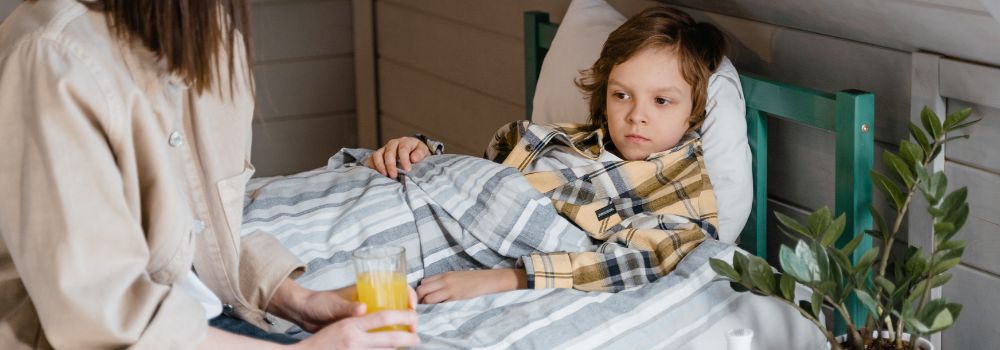WHAT IS Respiratory Syncytial Virus (RSV)?
Introduction
The respiratory syncytial virus (RSV) is a common virus that infects the airways of young children but can also affect other people. RSV can cause mild to severe illness.

What is RSV?
RSV is a respiratory virus that affects people of all ages. It's the most common cause of lower respiratory tract infections (influenza and pneumonia) in infants and young children. In addition, RSV is contagious, which means you can catch it from other people who have it.
You can get RSV if you breathe in tiny droplets from an infected person's nose, mouth, or throat. You might get RSV if you take care of an infant with this virus or live with someone who has it. The baby may not have signs or symptoms of RSV until after they've been infected for several days (or weeks).
How does RSV spread?
You can be exposed to the virus when you breathe in droplets in the air after a person with RSV has coughed, sneezed, or talked. You can also contract RSV if you touch objects contaminated with the virus. This is why it is essential to wash your hands frequently, especially if someone sick has touched them recently! The area around your eyes should also be avoided because this mucus membrane is susceptible, and any tears could spread infection.

What are the symptoms of Respiratory Syncytial Virus (RSV)?
- Runny nose
- Sneezing
- Coughing
- Fever (usually mild)
- Wheezing and difficulty breathing that worsens with activity or a chest infection (like pneumonia)
How to minimize your risk for RSV
If you have been around an ill person, wash your hands. Wash them often and use alcohol-based hand sanitizer when soap and water are unavailable—ideally, whenever you put your hands in or near your mouth or eyes.
In general, try to avoid exposure to people who are sick as much as possible. However, if there is no way around it—like if you're on an airplane or at a gas station—stay close by the door so you can get out fast if necessary.
There's no specific way to know whether someone has RSV except for checking with their healthcare provider; however, common symptoms include coughing (sometimes with green phlegm), sneezing without any discharge from their nose, and having runny nose without any discharge from their nose (or just a bit). Other symptoms include fever (over 101°F), wheezing/difficulty breathing, fatigue, or lethargy that lasts more than three days after getting better from an illness caused by another virus, such as influenza A or B viruses like those contained in flu shots, which protects against all strains except H1N1 since this strain has mutated over time making it less effective against them thus requiring yearly boosters.), irritability/"fussiness" (more than usual) in young children under two years old due to fever which may be accompanied by higher body temperature than regular readings taken rectally with a digital thermometer under armpit area where hormone levels would typically be high enough for an accurate reading) etc...
How can you minimize your risk of spreading Respiratory Syncytial Virus (RSV) in public?
It is essential to practice good hygiene habits to reduce the spread of RSV in public. It is necessary for people with respiratory illness to:
- Wash their hands often with soap and water or use an alcohol-based hand sanitizer.
- Avoid touching their mouth, nose, and eyes with their hands.
- Stay home from work or school if they are sick.
If you have a child that is sick:
- Keep them at home until they are fever free for 24 hours without using fever reducers such as acetaminophen (Tylenol®) or ibuprofen (Advil®, Motrin®). They will likely not be contagious after this period has passed; however, it is possible for viral shedding to continue up to 7 days after symptoms begin, so please talk to your doctor about when it's safe for your child to return to school/daycare settings!
Conclusion
Even if you don't have children, it's important to know about RSV. The infection can be severe in newborns and adults with compromised immune systems. It also spreads easily among older kids, so it's good for everyone to know how they can minimize their risk of spreading RSV or catching it from others infected.
